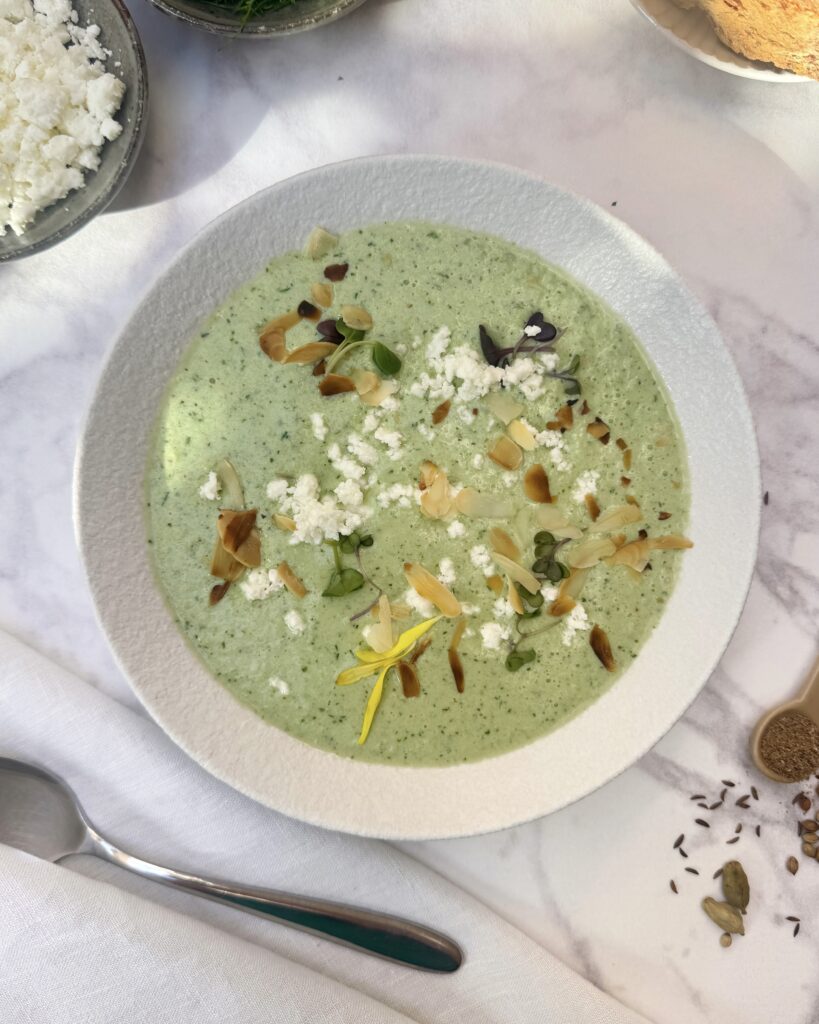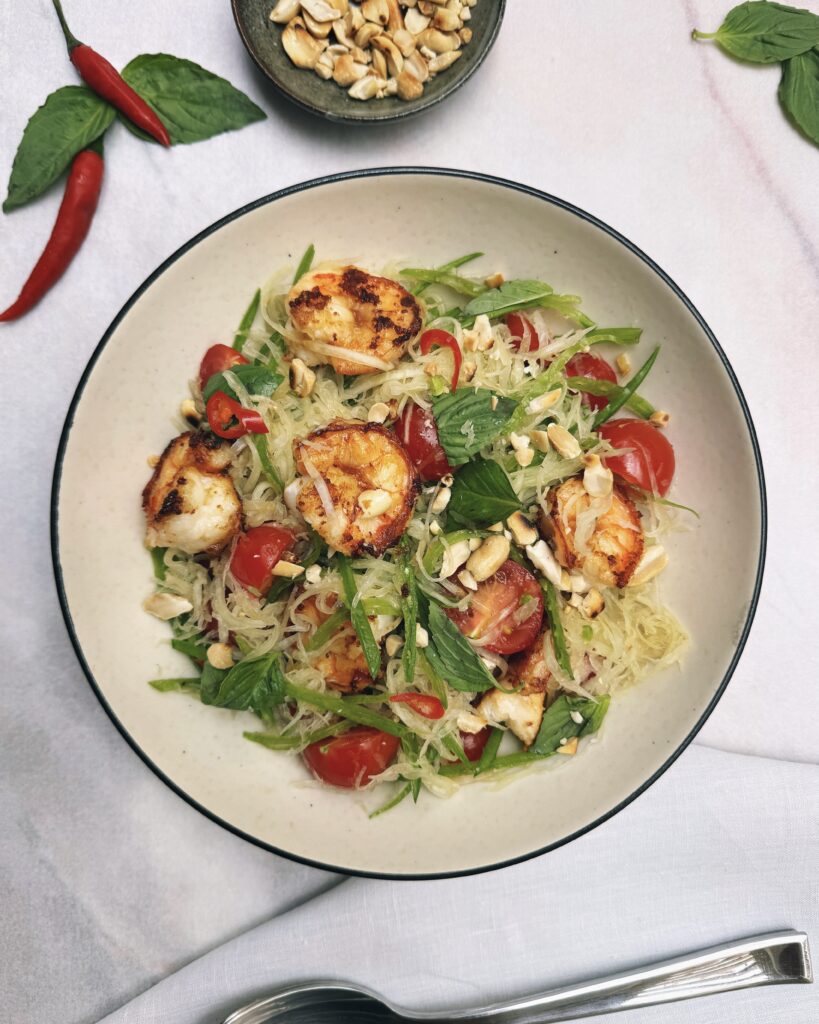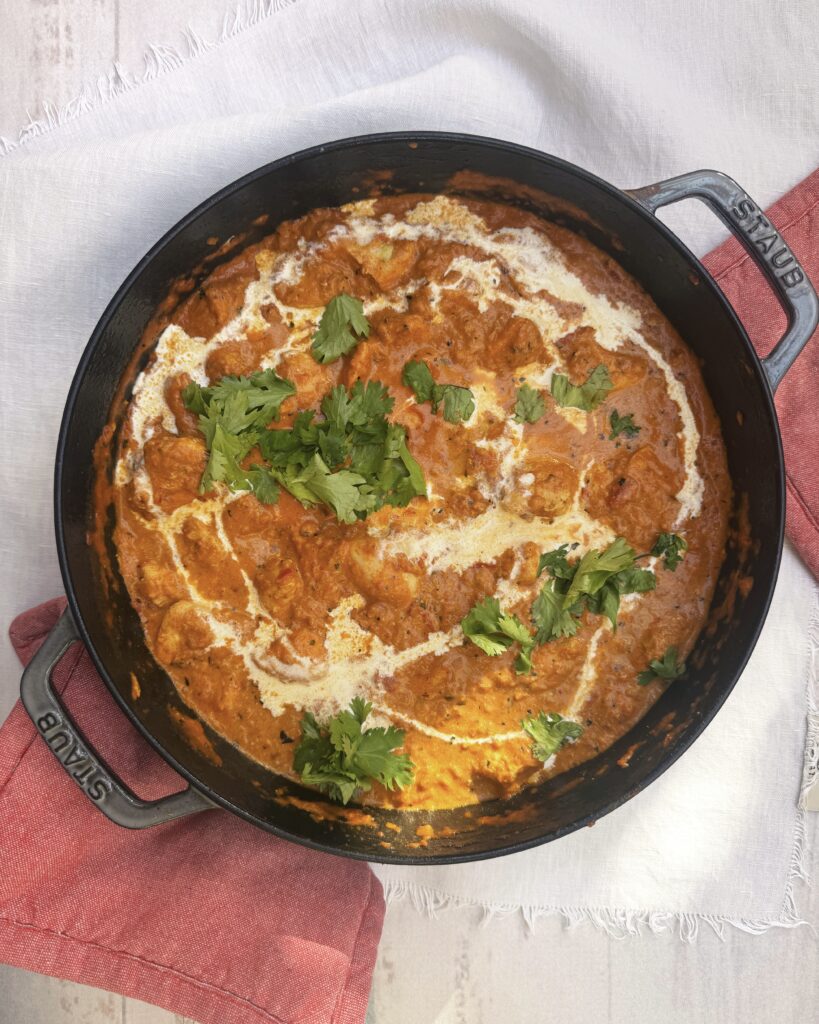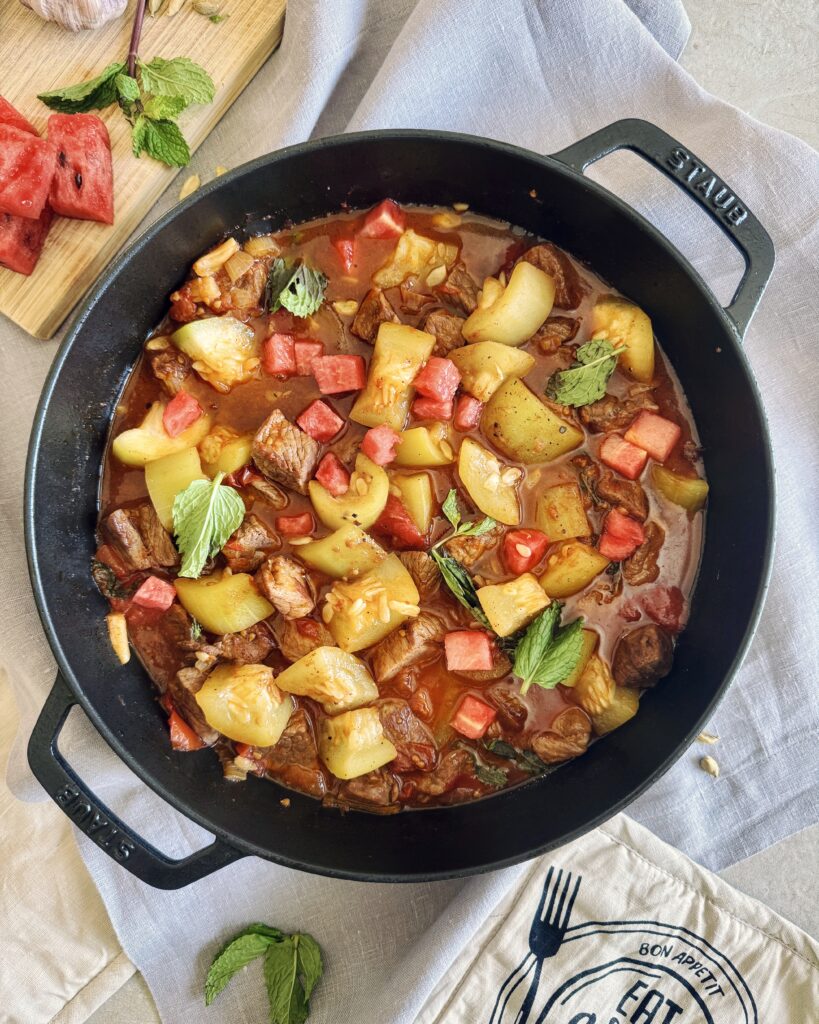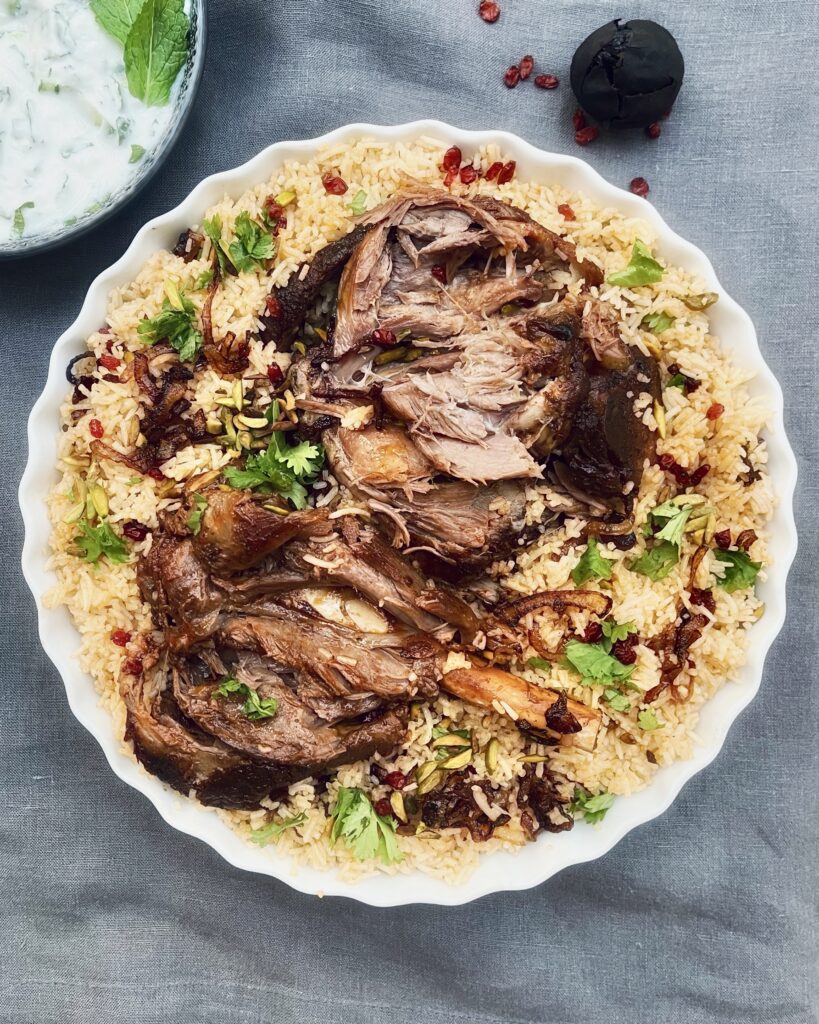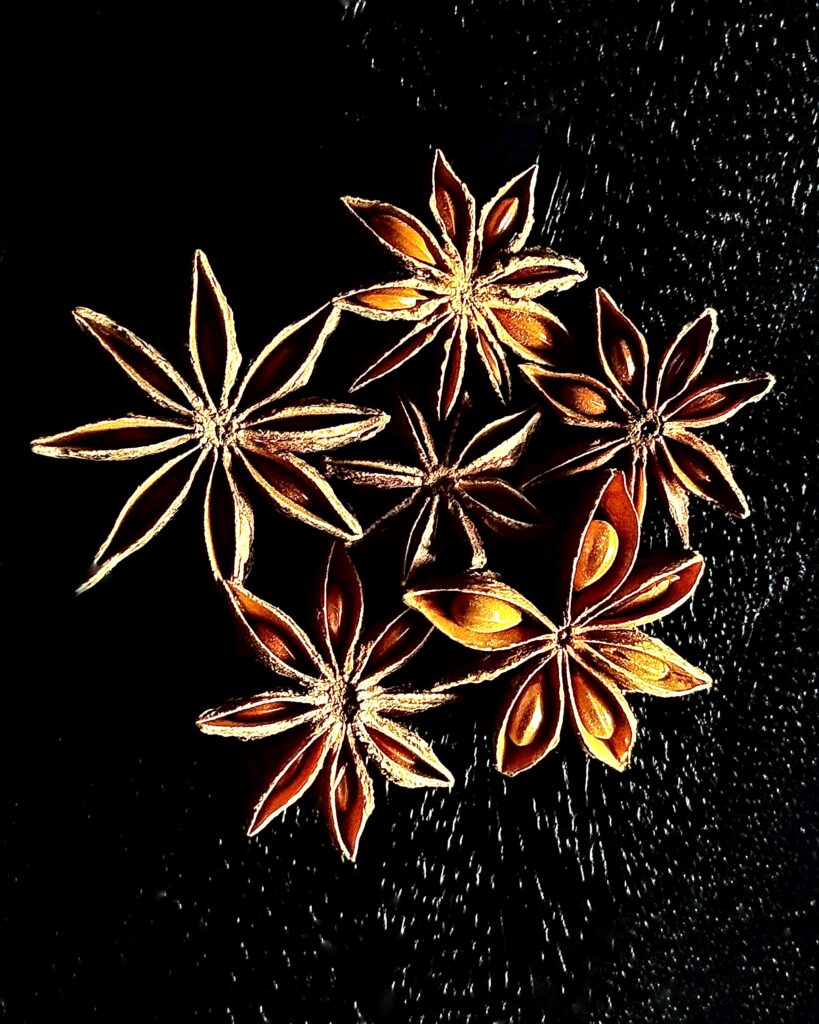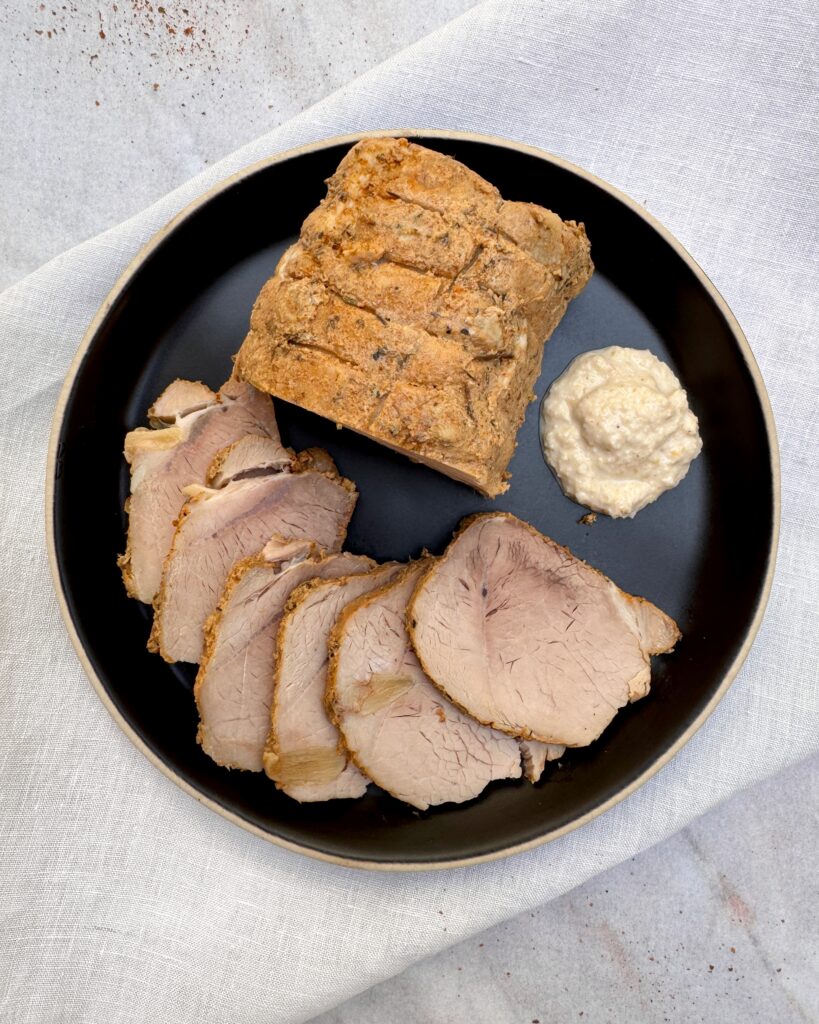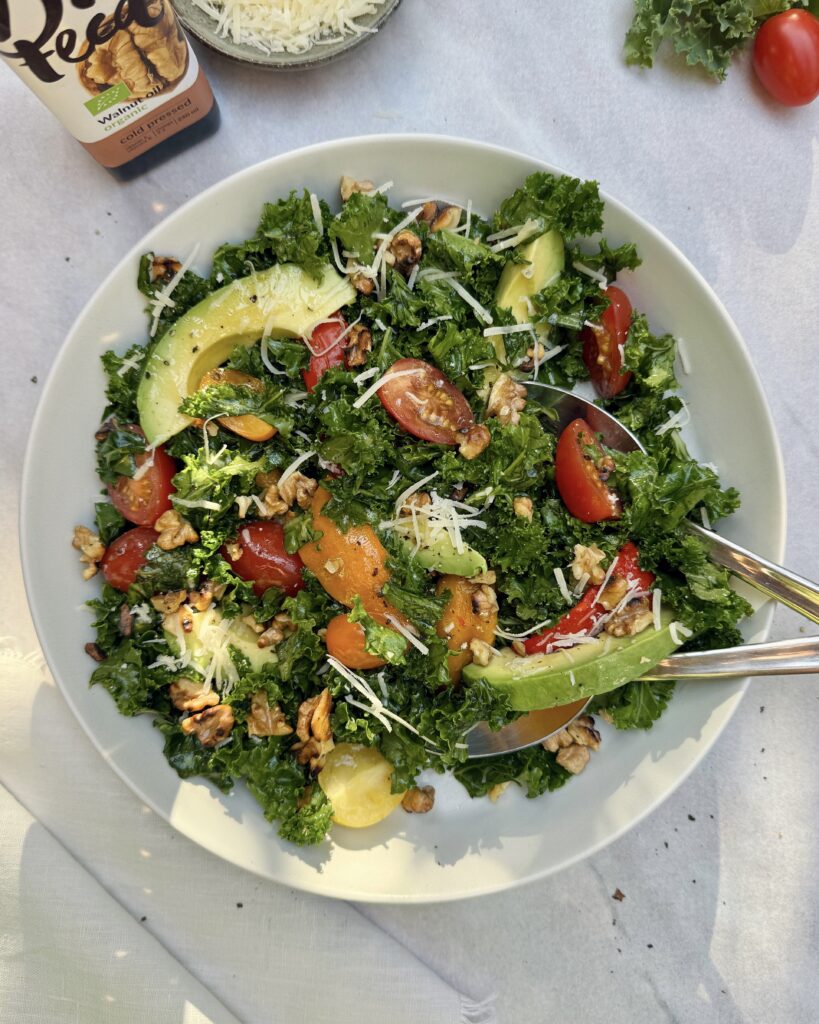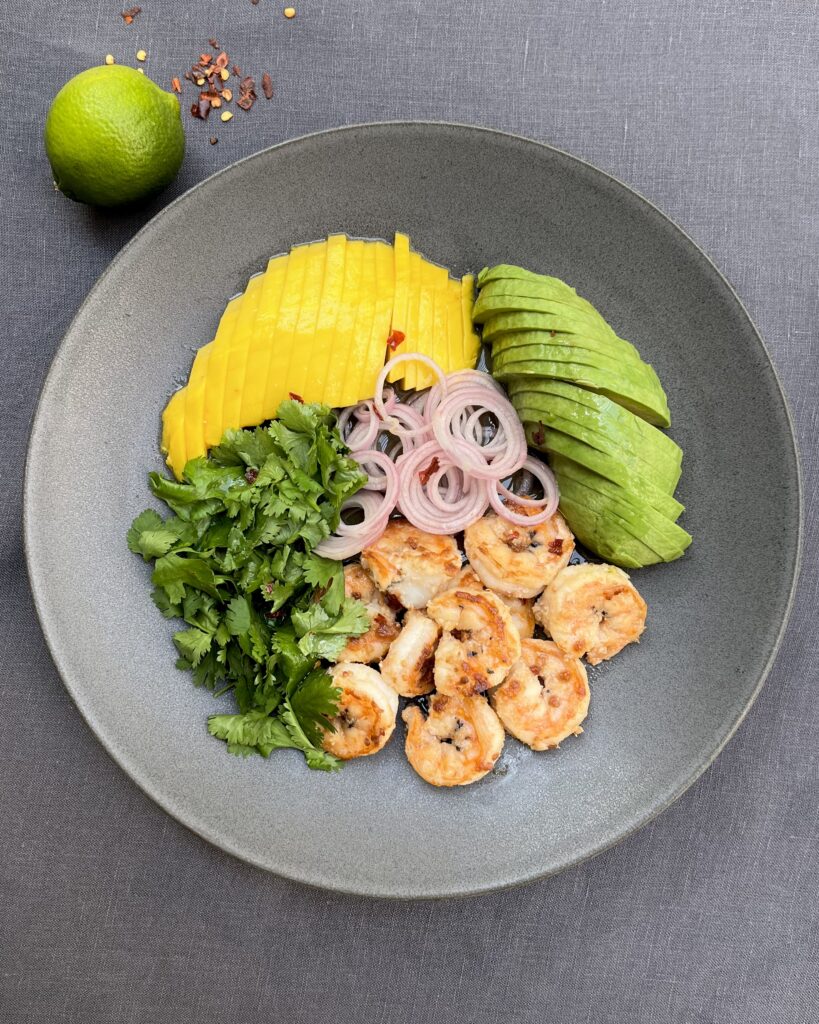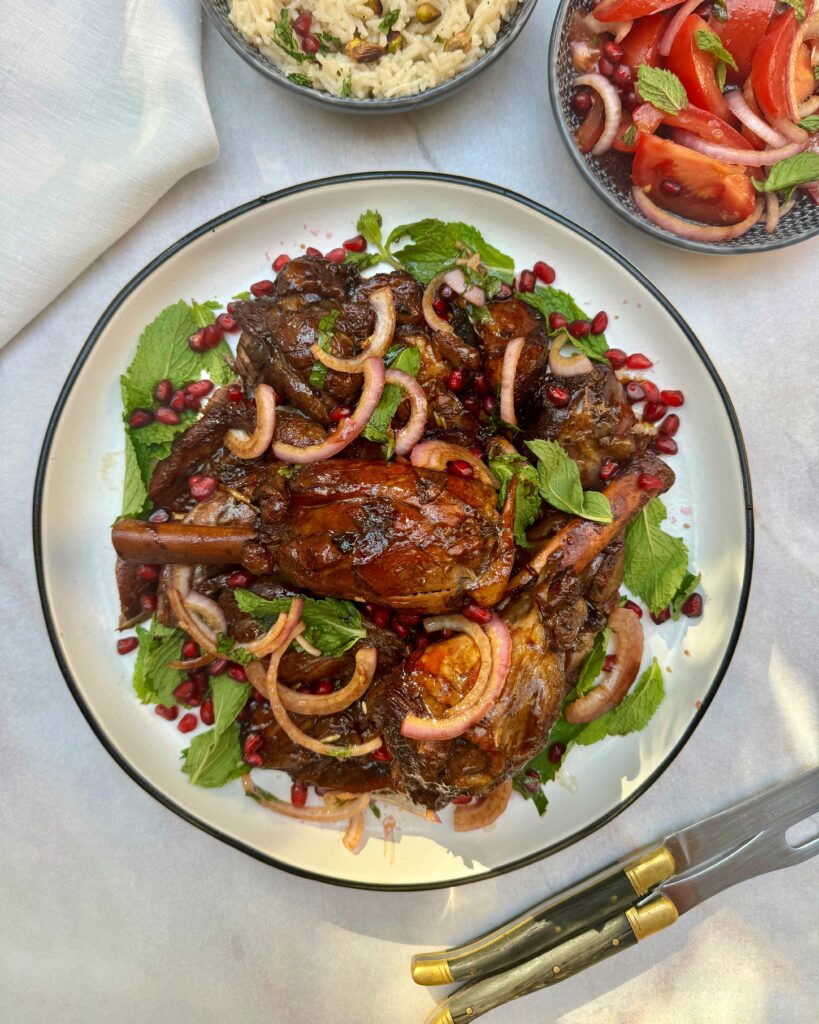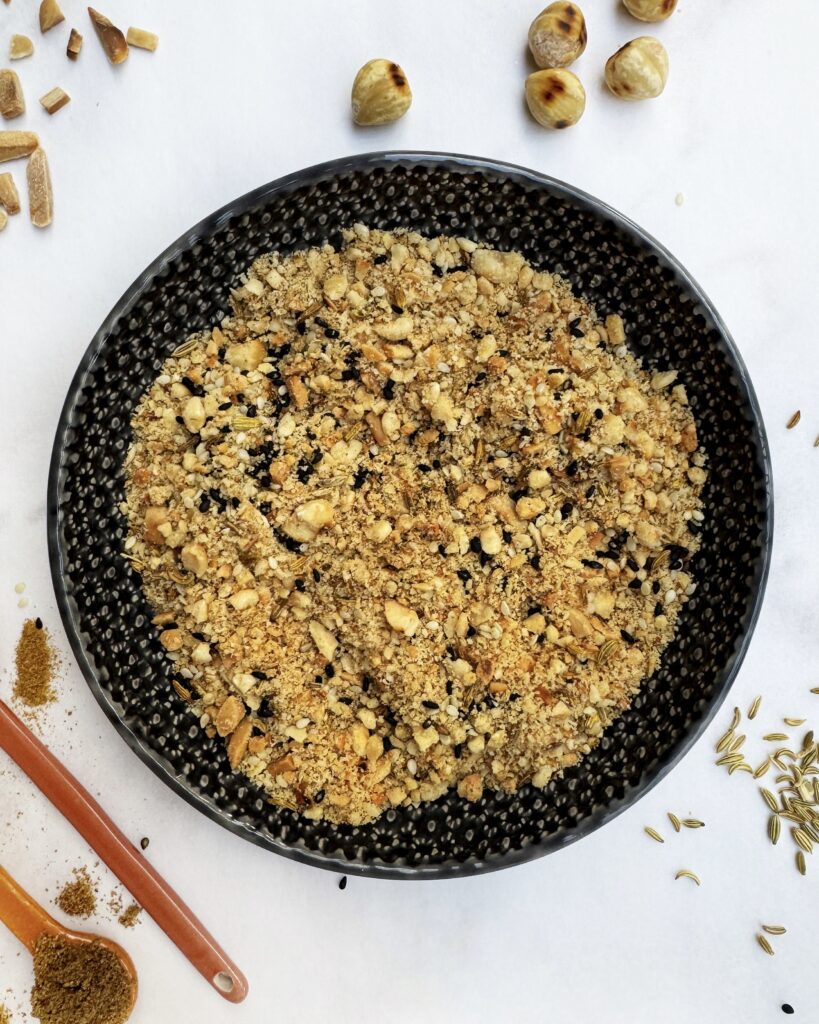
This dukkah seasoning featuring pounded nuts, ground spices, sesame and fennel seeds will add an appetizing crunch and a delightful twist to your dishes!
Dukkah is an Egyptian condiment containing nuts and a selection of spices. This everyday blend is quite versatile and can be used in a variety of ways. You can mix it with olive oil and serve as a dip for bread, or add as a seasoning for meats and vegetables.
The Flavour Affair:
Hazelnuts + Almonds + Salt + Cumin + Coriander + Sesame seeds + Fennel Seeds
As with many local condiments, the content of dukkah varies from one house to another. However, it always has pounded nuts, most traditionally hazelnuts, ground cumin and coriander. You can also add other spices depending on the intended use. In this dukkah recipe I am using fennel – its sweet licorice-y taste is a great match for vegetables that I was planning to top with the seasoning.
Cumin: cumin is one of the prevailing flavours in Egyptian cuisine. Its rich, nutty notes liven up relatively humble ingredients of Egypt’s vegetable and meat dishes. Cumin is the key flavouring in dukkah. Typically, they use ground cumin but you can also toast and grind whole spice.
Coriander: coriander’s mellow, floral and citrus-y taste makes it a great partner for the earthy cumin. These two spices are often used together. Likewise, it is typically used in powdered form.
Sesame seeds: white sesame seeds accentuate the nuttiness and add a subtle sweetness to the blend. In my dukkah recipe I am also using black sesame seeds – I like the hint of bitterness which makes the overall flavour more rounded.
Preparation Tips for Homemade Dukkah:
In authentic dukkah recipes, nuts are pounded and mixed with ground spice, salt and sesame seeds. There are a few things to note:
- You need to toast the nuts, sesame seeds and any other whole spice (like fennel seeds) beforehand. Toasting brings out the aromas and makes spices suitable for consumption.
- Because of different cooking times, it is best to do the toasting in turns to avoid burning. Start with nuts: place them onto a hot pan and toast until they’ve browned and start smelling amazing. Remove, add whole spice (if using) and briefly toast until the seeds darken. Sesame seeds need least time.
- The texture of original dukkah is coarse. This is why it is important to not over process the nuts and seeds. If you are using a mortar and pestle, pound the mixture without going too hard on it. If using a spice grinder, give it a few short pulses and check for the texture.
Serving Suggestions:
There are many ways you can enjoy your homemade dukkah. While traditionally they mix it with olive oil and use as a dip for bread, I love sprinkling it over roasted vegetables or even fish. It brings in an aromatic finish and an attractive crunch and is a great way to add a little sophistication to a simple dish. Still not sure? Try these delicious Brussels Sprouts (yes, you heard it right!) and see for yourself!
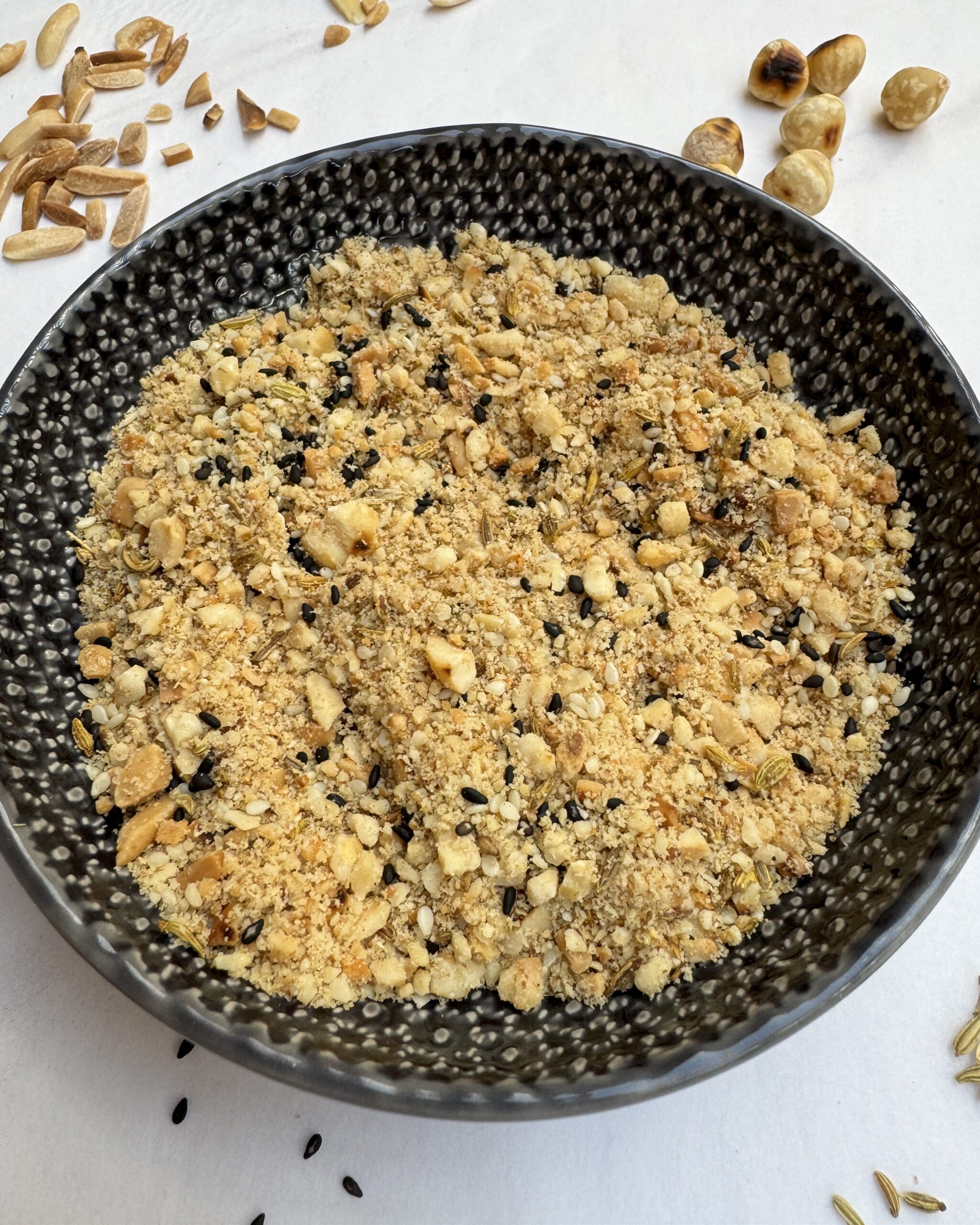
Homemade Dukkah Recipe
Equipment
- 1 pan
- 1 spice grinder see notes
- 1 Mixing Bowl
- 1 airtight container to store
Ingredients
- 3 tbsp hazelnuts
- 3 tbsp almonds
- 1 tsp ground cumin
- 1 tsp ground coriander
- 1/2 tsp salt
- 1 tsp white sesame seeds
- 1 tsp black sesame seeds optional
- 1 tsp fennel seeds optional
Instructions
- Heat pan to medium.
- Toast the nuts for 4-5 minutes until they start turning brown and releasing aromas. Remove from the pan.
- Add whole spices, if using, and toast for 20-40 seconds minutes. Remove from the pan.
- Lastly, toast the sesame seeds.
- Add nuts to the spice grinder and press a few times. Check the texture – it should be coarse but without too large pieces. Pulse a couple of more times if required and transfer to a mixing bowl.
- If using whole spices, add them to the grinder together with salt and ground spice. Pulse a few time to just break them. Transfer to the mixing bowl with nuts.
- Add the roasted sesame seeds to the bowl and mix everything together.
- You can safely store dukkah for a few months in an airtight container.
Notes
- You can use a basic mortar and pestle to pound the nuts and fennel seeds.
- Store dukkah in an airtight container in a dry cool place.


